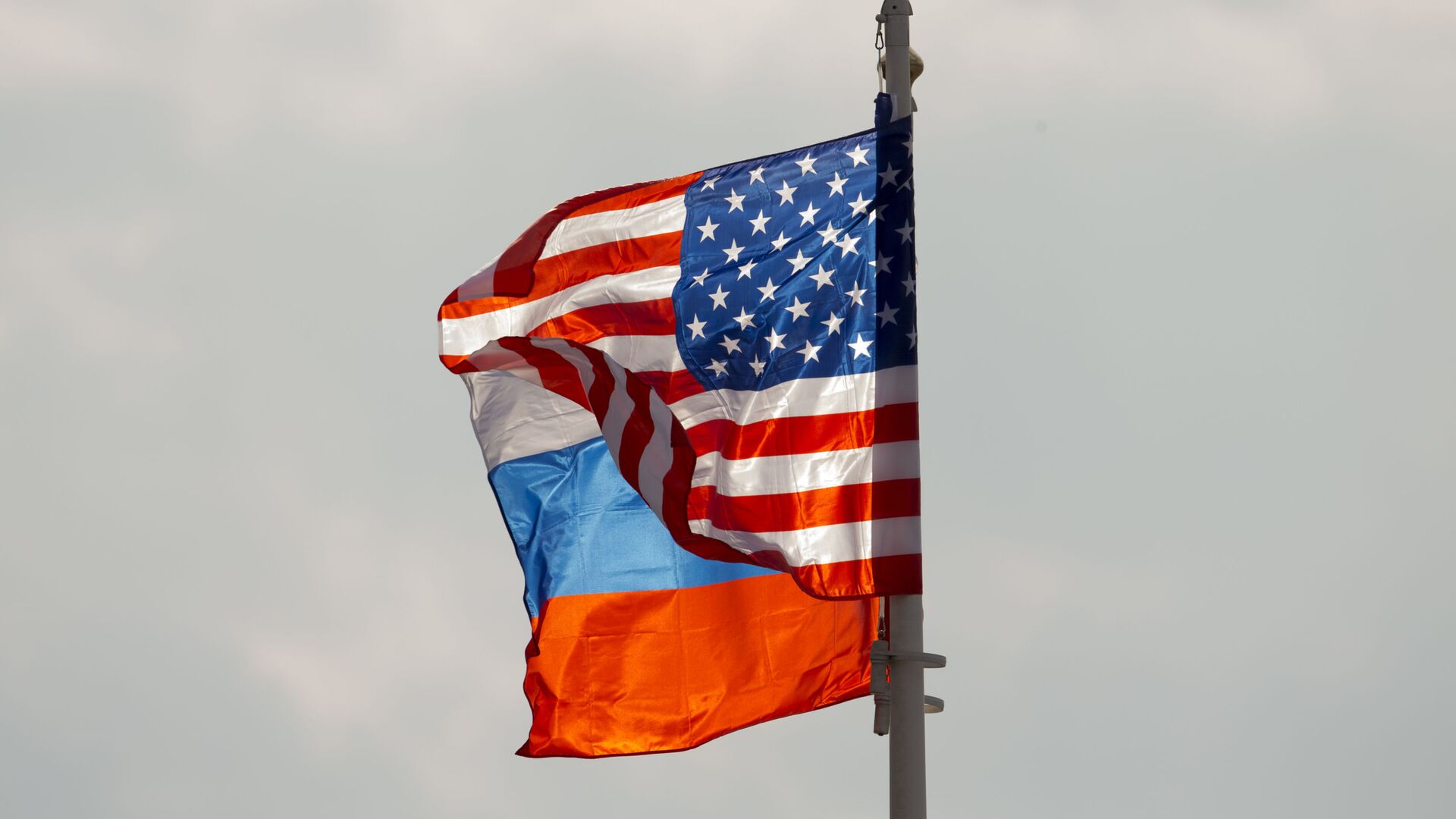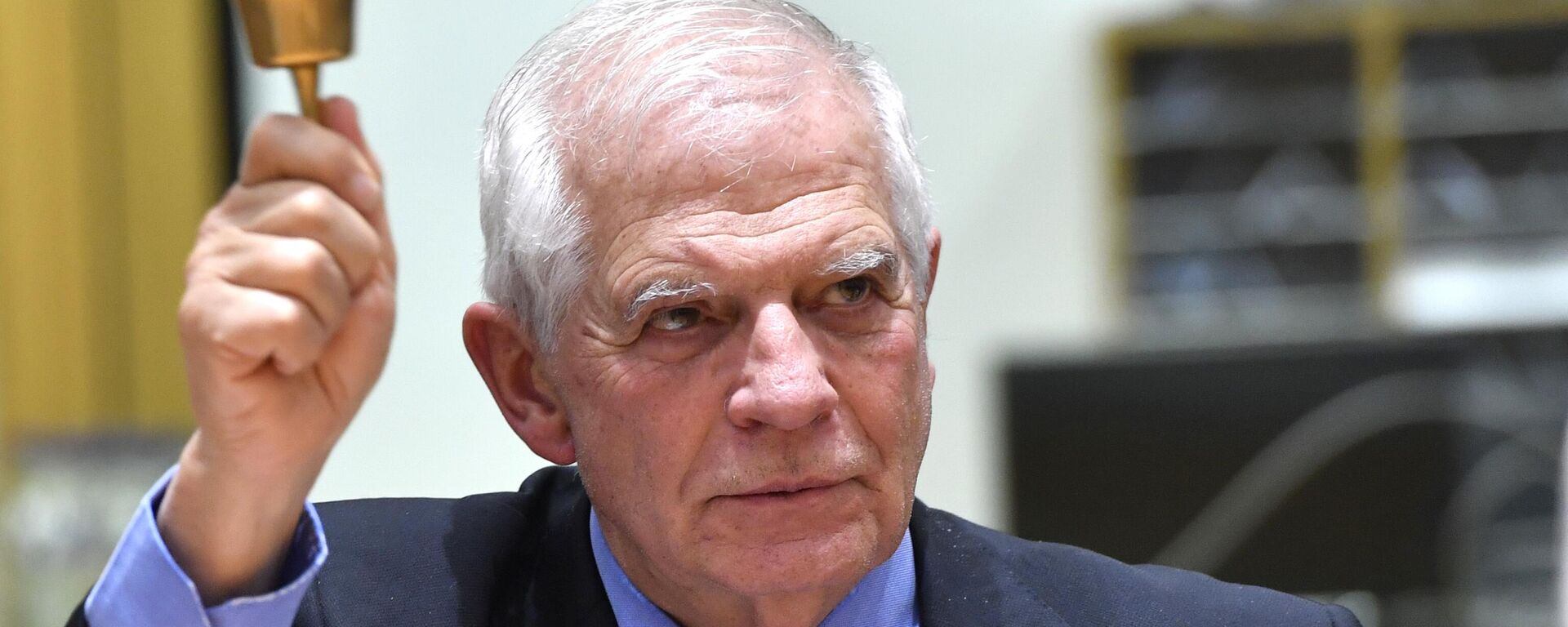US Investor: Normalizing West-Russia Ties Will Happen as History Does Not Stand Still
07:47 16.05.2023 (Updated: 10:48 03.08.2023)

© AP Photo
Subscribe
WASHINGTON (Sputnik) – Relations between Russia and the countries of the collective West will eventually return to normal given that history does not stand still, American investor Jim Rogers told Sputnik.
"I know it will happen," Rogers said when commenting on a possible normalization of relations between Russia and the collective West in the future. "I know that all of this will be forgotten someday."
Rogers noted that Germany and the Axis powers were at war with the rest of Europe in 1939, but relations after the war eventually improved.
"Most people don't remember that now. We all drive Volkswagen, we all drive Mercedes. The world moves on. I know this will be forgotten someday. Everybody moves on. History does not stand still," Rogers said.
When asked whether he thinks that the companies that left Russia because of the collective West's sanctions will ever return, Rogers said, "Of course."
Rogers asked whether anyone thinks Russia will be at war for the rest of history, adding that a few years from now people will still have conversations like this one but long-term they will move on.
"People will not remember. You and I will remember it and during the next decade people will remember it, but in 50 years or in 100 years, people will move on and do other things whether we like it or not. That's the way history works," Rogers remarked.
The investor also added that control measures, like the collective West's price cap on Russian oil, have never been effective because people promptly find ways to get around the imposed restrictions.
"Throughout history, people have put on price controls or whatever, but these never work because people immediately figure out a way to get around the restrictions and then black markets develop," Rogers said. "Whatever the world does to Russia and oil, it will not have much effect."
Rogers noted that there are many parties that are now selling Russian oil on the black market and he emphasized that whenever governments impose controls, sanctions or other restrictions, black markets develop.
"So, they [restrictions] affect a few people for a while, but in the end they don’t have much effect," he said. Russia is selling a lot of oil to somebody. I am not buying it, but somebody is."
When asked whether European countries can completely move away from Russian oil, Rogers said, "Of course they can move away."
"During the Cold War, Russia was not selling oil to Europe. You remember Mr. Brezhnev, Mr. Stalin, Mr. Khrushchev, those people, Russians were not selling oil to the Europeans. So, of course, they can move away," he said. "If things get really horrible again, we will have that kind of period again in the world. A lot of people will not be able to buy whatever it is from other countries. So it can happen but don't worry, Russia's going to sell their oil, somebody is going to buy Russian oil."
The US investor also told Sputnik that he does not see the situation with the Russian assets frozen by the United States-led collective West turn into a major problem given that not many nations support Washington's position.
When asked whether the frozen Russian assets may be transferred to Ukraine, Rogers said such a thing could happen and has happened.
"However, I don't think that would be very widespread because the number of countries that are supporting the US position is remarkably low. I think like 30 or 35 countries," he said.
"So yes, that could happen to some extent, but there will be too many people who will want to get around the sanctions and the problems. If you add up the number of countries supporting the United States and the United Nations, they are not very many. ... That aspect, I don't see it turning into a huge problem," Rogers added.
However, Rogers also went on to say that the freezing of Russian assets has undermined trust and made even allies of the United States nervous that such a measure may be used against them.
"Of course, everybody is worried," he said. "Right now, many of America's allies are looking for something to compete with the US dollar because they realize it could be used against them too... Now we have to be very careful, there is a different world. And we have to ask a lot of questions we didn't ask before. But I want to say to you again, this is all in the history books, this has all happened before."
After the start of Russia's military operation in Ukraine on February 24, 2022, the collective West has imposed comprehensive sanctions against Russia, including the freezing of nearly half of the country's foreign currency reserves - amounting to about $300 billion. The European Union alone froze assets of Russian organizations and individuals worth $23.3 billion, according to European Commissioner for Justice Didier Reynders.

